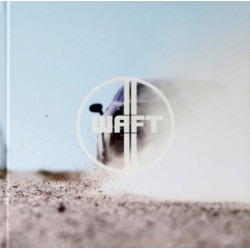Aucun produit
Librairie passion Automobile, 83 rue de Rennes, 75006 Paris (Métro, stations Rennes ou Saint-Sulpice) 01 45 48 15 14
FIT FOR A KING - THE ROYAL GARAGE OF THE SHAHS OF IRAN
Iran has a monarchical history spanning over 2,500 years. Almost all of Iran’s Kings have had vast unchecked powers as they built, and lost, some of the largest empires in history. These vast powers led to Iran’s Kings being referred to as “Shahanshah” meaning literally the “King of Kings”. ...
Référence 17_1294
Fiche technique
| EAN13 | 9781854432926 |
| Editeur | Dalton Watson |
| Langue | Anglais |
| Auteur(s) | Borzou Sepasi |
| Date de parution | Mars 2022 |
| Nombre de pages | 564 |
| Format | 23 x 28 |
| Couverture | Relié, sous jaquette |
| Photos | 1046 |
En savoir plus
Iran has a monarchical history spanning over 2,500 years. Almost all of Iran’s Kings have had vast unchecked powers as they built, and lost, some of the largest empires in history. These vast powers led to Iran’s Kings being referred to as “Shahanshah” meaning literally the “King of Kings”.
With the advent of the automobile, Iran’s Shahanshahs procured some of the world’s most renowned automobiles for their royal garages starting from the first car to be imported to Iran, a Gardner-Serpollet 10 hp, to the famed Maserati 5000GT “Scia de Persia”, specially-ordered and owned by Iran’s last Shah, Mohammad Reza Shah Pahlavi.
In his broad spanning work, Iranian automotive historian Borzou Sepasi traces the royal garage of each Iranian Shah, starting with Mozaffar ad-Din Shah Qajar in 1900, who despite importing the first car, forbade drivers from going faster than carriages, and all the way up to the 1979 revolution. In an important postscript, the fate of many of the cars covered in the book following the end of monarchical rule in Iran, are shown.
The book also intertwines many of the historical events in Iran with the cars of the period, highlighting the special role these vehicles played. Dalton Watson is proud to present this little-known period of unique automotive history to its readers.
30 autres produits dans la même catégorie :



































